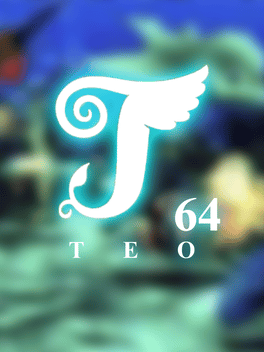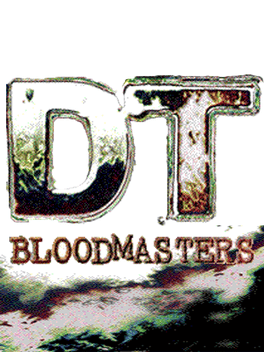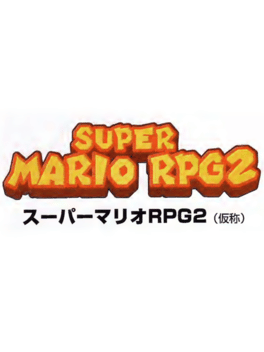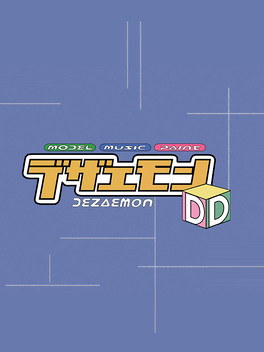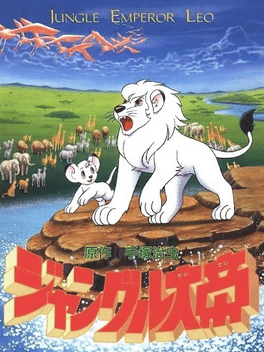Most Popular 64dd Games
-
Teo 64
Teo 64 was a pet simulation video game, very similar to “Hey You Pikachu!”, the Nintendo title where the player could interact with the Pokemon talking to him through a microphone connected to the N64. In this game, however, the protagonist was a strange cross between a dolphin and a bird. Speaking with the animal it was possible to became his friend, feed him and explore the world. For many it will be a shocking news, but “Teo” is not the name of the dolphin / bird, but of the planet where he is living. Known under the title “FinFin on Teo, the Magic Planet”, the virtual puppy FinFin made his first appearance on a PC game released in 1996. According to the producers, the 64DD version was not a porting, but a completely new game. The development of Teo for 64DD was probably stopped because of the failure of the Disk Drive, and it is likely that we will never know how different the 64DD game was supposed to be. -
DT Bloodmasters
We don't have much information on DT 64 (also known as “Bloodmaster”): the game was supposed to be an Card RPG with an interesting connection-mode between the 64DD and the Game Boy. The game was in development by Marigul and Media Factory and probably it would have been published by Nintendo. The player had to collect a series of cards to use them in combat as in Magic The Gatering. DT 64 was shown at the Space World 1999 in a non-playable form: there was just a logo and some text , with the GameBoy Link Cable, that would have been used to connect the two Nintendo consoles. The GameBoy could have been used as a controller for the 64DD game, to check the card statistics and share data with a presumed Bloodmaster GB version. The two games, one for the 64DD and one for the GB, would had exchanged data to integrate parts of the story and unlock new levels / cards. Players would have been able to play online with the 64DD Randnet Network, to trade cards and complete their collection. In a scan from a Japanese maga -
Oriental Blue
Oriental Blue is a cancelled RPG in the Far East of Eden (Tengai Makyō) series that was in development by Hudson and Red Entertainment for Nintendo 64DD in late ‘90. A few years later, in an interview published on the japanese Nintendo website, Kaori Shirozu (director and designer at Hudson at the time) explained that the project was resurrected and re-developed as a GBA game and finally released in 2003 as Oriental Blue: Ao no Tengai. -
Yosuke Ide's Mah-jongg School
Yousuke Ide's Mah-jongg School is a cancelled game for the Nintendo 64DD. -
Desert Island 64
Desert Island 64 (also known as Super Real Island) was a simulation RPG that was to be developed by Imagineer and released on the now discontinued Nintendo 64 peripheral, the Nintendo 64 Disk Drive. -
Super Mario RPG 2
A sequel to Super Mario RPG: Legend of the Seven Stars, otherwise known as Mario RPG 2 and Mario RPG 64 while in development. Due to complications involving Square, it was reworked into Paper Mario and was released as a standard Nintendo 64 title. -
Ultra Donkey Kong
A game called Ultra Donkey Kong for 64DD was sometimes referred in old gaming magazines, which is thought to be an early version of Donkey Kong 64. Recent investigations debunked the theory of it being Donkey Kong 64, but it is still unknown the reason for this game being mentioned. -
Dezaemon DD
Dezaemon DD is an unreleased expansion for Dezaemon 3D, developed for the Nintendo 64 Disk Drive. -
Jack & Beans
A mysterious game that was being developed for the 64DD by a team at HAL Laboratory headed by Yoichi Yamamoto, a former construction engineer. While little is known of the game in its original form, it is believed that many of the game's features were later incorporated into Pokémon Snap, developed by the "Jack & Beans" team. -
Jungle Emperor Leo
Jungle Emperor Leo was a 1997 movie based on the 1950's manga by Osamu Tezuka, Kimba the White Lion (incidentally, the inspiration for Disney's The Lion King). Nintendo secured the rights to develop a game based on the movie which was announced for the 64DD. The game appears to have been an action-adventure title starring characters from the movie and manga, but very little footage of the game was shown, so details are scarce.

